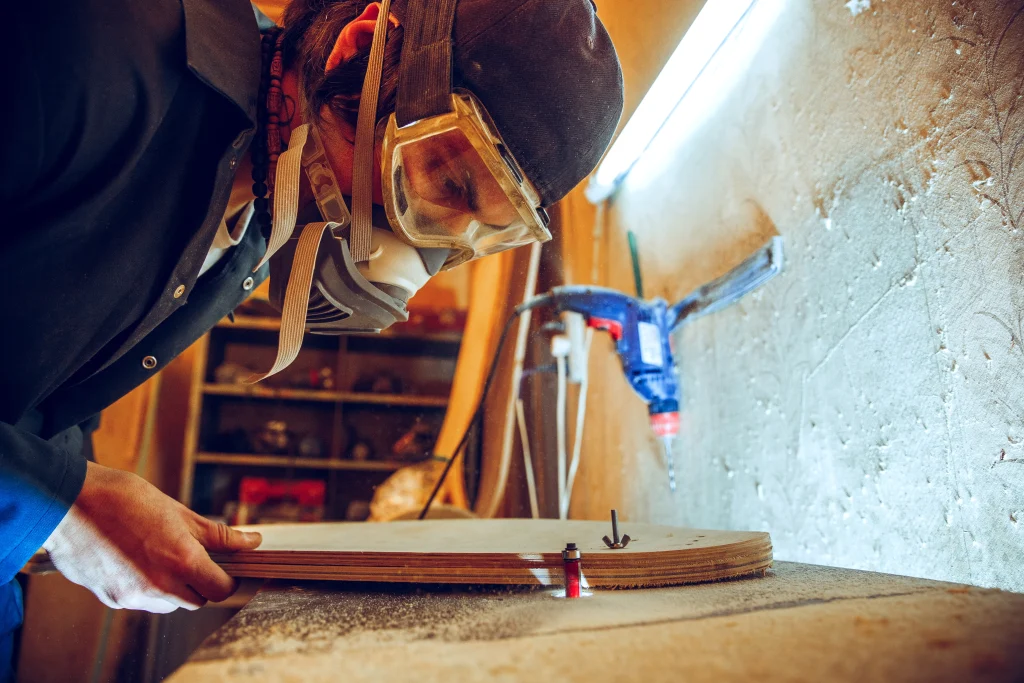Have you ever wondered what it takes to be a joiner? Or maybe you’re curious if a joiner job is the right fit for you. Let’s dive into the joinery world and uncover why this profession might be your perfect match. Understanding the career prospects in joinery can help you make an informed decision about your future.
Benefits of Being a Joiner
Competitive Salary and Job Security
One of the biggest perks of being a joiner is the competitive salary. Joiners are skilled tradespeople, and their expertise is always in demand. Whether crafting bespoke furniture or working on large-scale construction projects, your skills will always be valued. Plus, job security in this field is solid. As long as people need beautifully crafted woodwork, joiners will have work.
Skill Development and Training Opportunities
Joinery is a career that keeps you on your toes. There are always new techniques to learn and tools to master. The ongoing training opportunities mean you’ll never be stuck in a rut. The path to honing your craft is endless, from apprenticeships to advanced courses.
Job Satisfaction and Creativity
Imagine seeing a piece of furniture and thinking, “I made that.” The sense of pride and accomplishment from creating something tangible is unparalleled. Joinery allows you to express your creativity while delivering functional and beautiful products. It’s a job where your hands and mind work harmoniously to bring ideas to life.
Career Prospects and Opportunities
Demand in the Industry
The demand for skilled joiners is on the rise. With the construction industry booming and a growing appreciation for bespoke, handmade items, joiners are more sought after than ever. Whether it’s residential, commercial, or custom projects, there’s always a need for quality craftsmanship.
Career Advancement and Growth
Joinery offers a clear path to career advancement. You can start as an apprentice, move on to a journeyman, and eventually become a master joiner. With experience and additional training, you can specialize in furniture making, cabinetry, or architectural joinery. The growth opportunities are vast.
Versatility in Job Roles
A career in joinery is more varied. One day, you might be crafting a custom kitchen, and the next, installing intricate woodwork in a heritage building. This versatility keeps the job exciting and ensures that no two days are the same.
Necessary Skills and Qualifications
Essential Joinery Skills
To excel as a joiner, you need a mix of technical skills and an eye for detail. Precision, patience, and a steady hand are your best friends. Understanding materials, reading blueprints, and using various tools and machines are part of the daily grind.
Training and Certification
Becoming a joiner typically involves a combination of formal education and hands-on training. Apprenticeships are a common route, providing valuable on-the-job experience. Certifications from recognized institutions can boost your credibility and open doors to better job opportunities.
Continuous Learning and Development
The world of joinery is always evolving. Staying updated with the latest trends, tools, and techniques is crucial. Continuous learning ensures you remain competitive and can offer the best services to your clients.
Challenges in the Joinery Profession
Physical Demands and Safety
Let’s be real – joinery can be physically demanding. Lifting heavy materials, standing for long periods, and handling sharp tools are part of the job. Ensuring safety and using proper protective equipment is essential to avoid injuries.
Staying Updated with Industry Trends
The joinery industry is not immune to trends. Keeping up with the latest industry trends, from sustainable materials to new design styles, can be challenging but rewarding. It keeps your work fresh and relevant.
Balancing Work-Life
Like any profession, balancing work and personal life can be tricky. Deadlines and demanding projects may infringe on your time. However, with good time management and planning, finding a healthy balance is possible.
Final Thoughts
So, is a joiner a good job? Absolutely! With a competitive salary, job security, and endless opportunities for creativity and growth, joinery offers immense satisfaction and prospects.
Take the Next Step in Your Joinery Career
Ready to start your journey in joinery? Visit mgbjoinery.com.au today to learn more about our available positions and training programs. Join our team and be part of a community that values craftsmanship and innovation. Don’t wait—your future in joinery awaits!
FAQs
1. What is the difference between a joiner and a carpenter?
Joiners typically work on crafting items in a workshop, such as doors, windows, and furniture, whereas carpenters often work on-site, constructing and installing these items into buildings and structures.
2. How long does it take to become a qualified joiner?
The time it takes to become a qualified joiner can vary, but typically, an apprenticeship lasts around 2-4 years, during which you gain hands-on experience and complete necessary coursework.
3. Do joiners need to have their tools?
While some employers may provide tools, it is common for joiners to invest in their tools to ensure they have everything they need for various jobs and maintain a personal quality standard.
4. Can joiners specialize in a particular type of work?
Yes, joiners can specialize in furniture making, cabinetry, or restoration. Specializing can lead to higher pay and more job opportunities.
5. What are the working conditions like for joiners?
Joiners can work in various settings, from workshops to construction sites. The job can be physically demanding and, if it is outdoors, may require working in different weather conditions.






